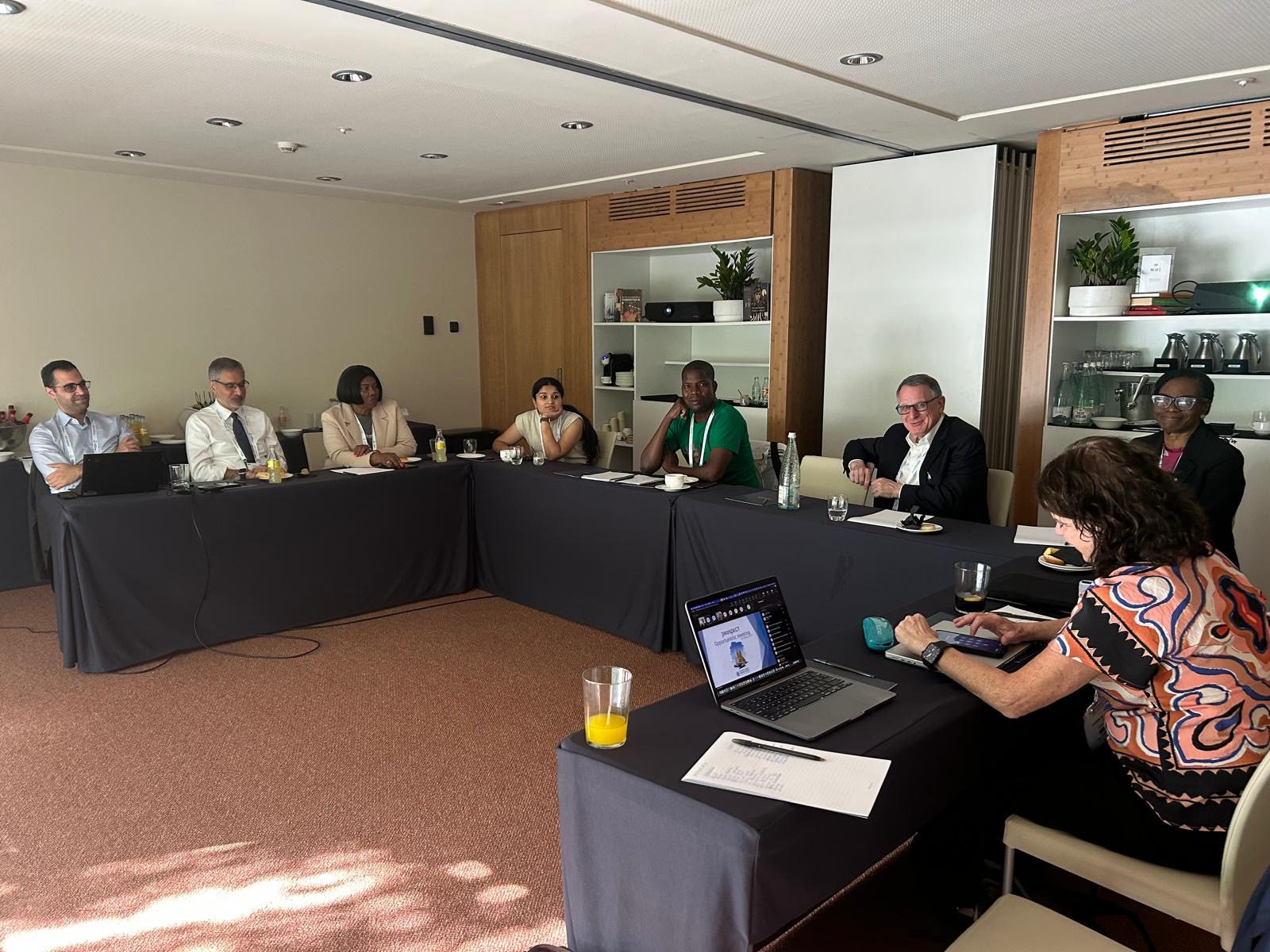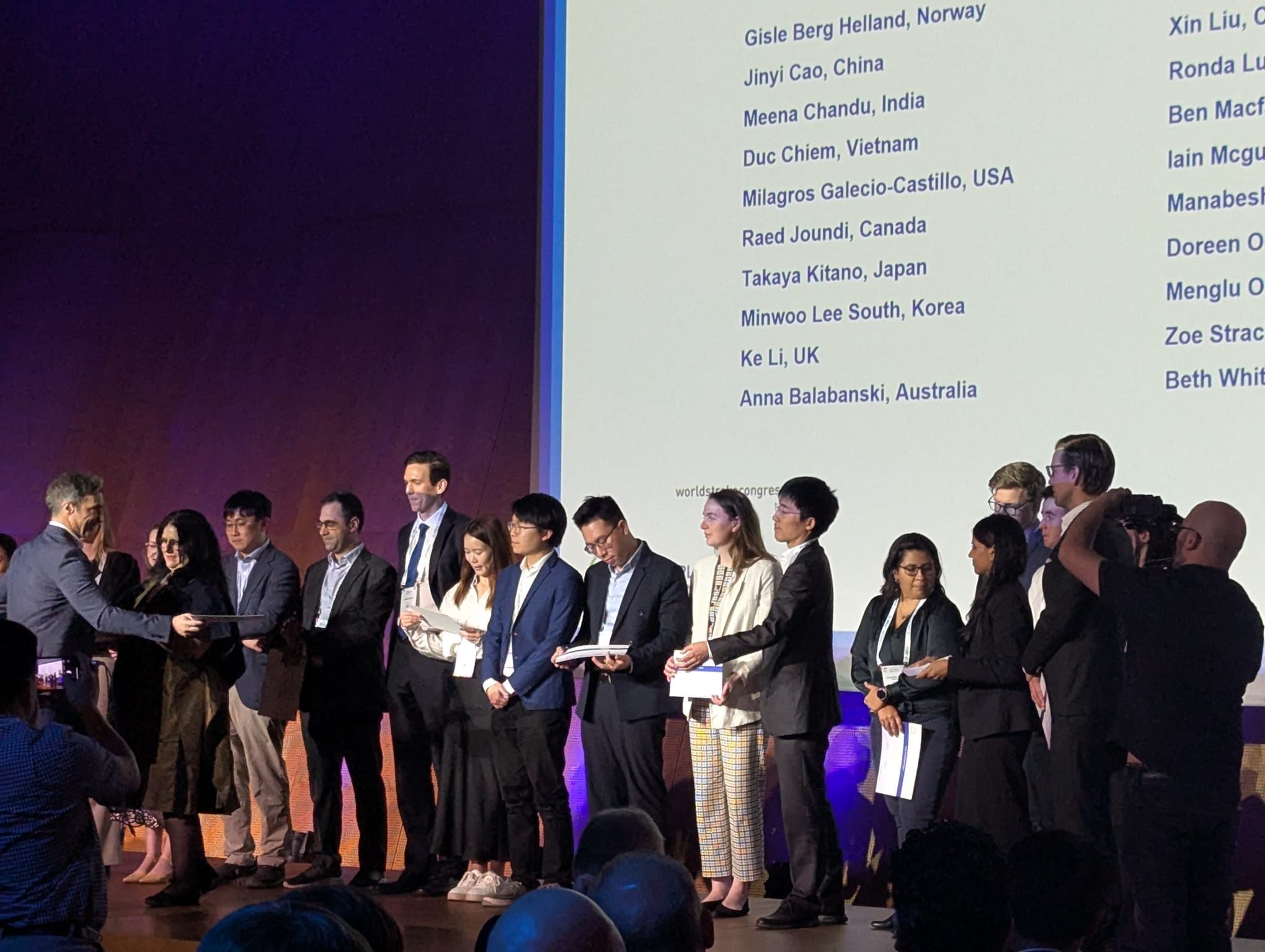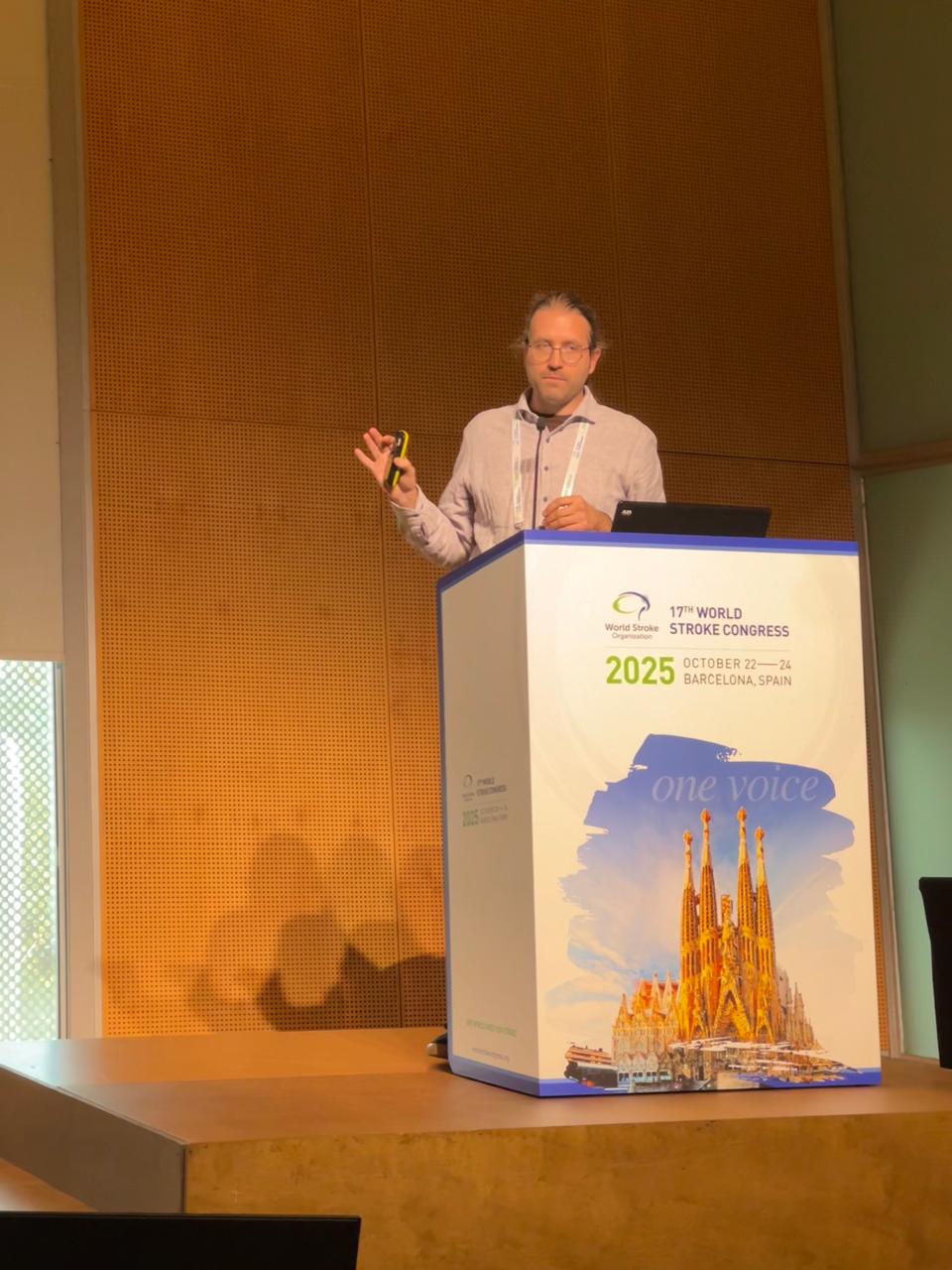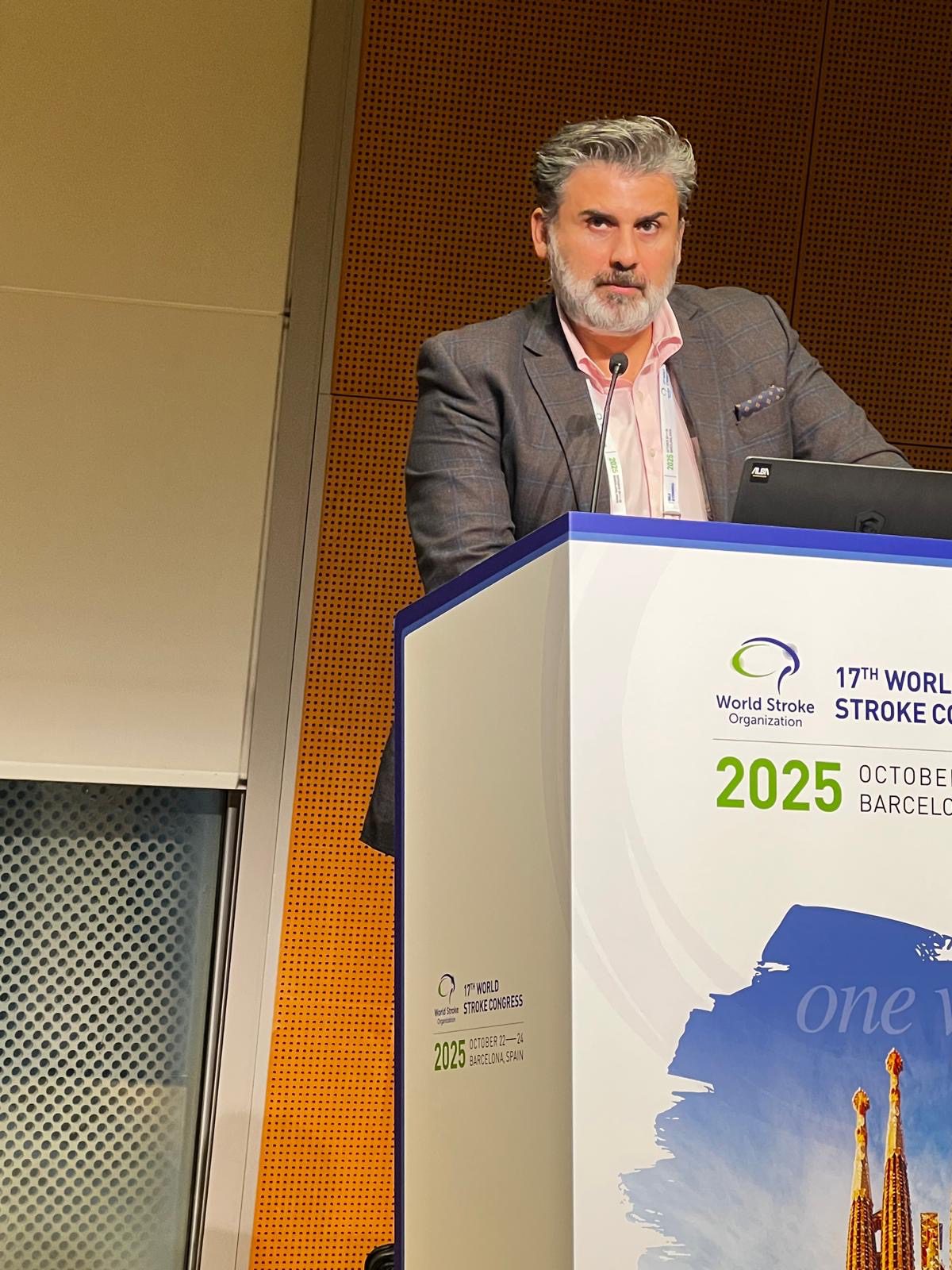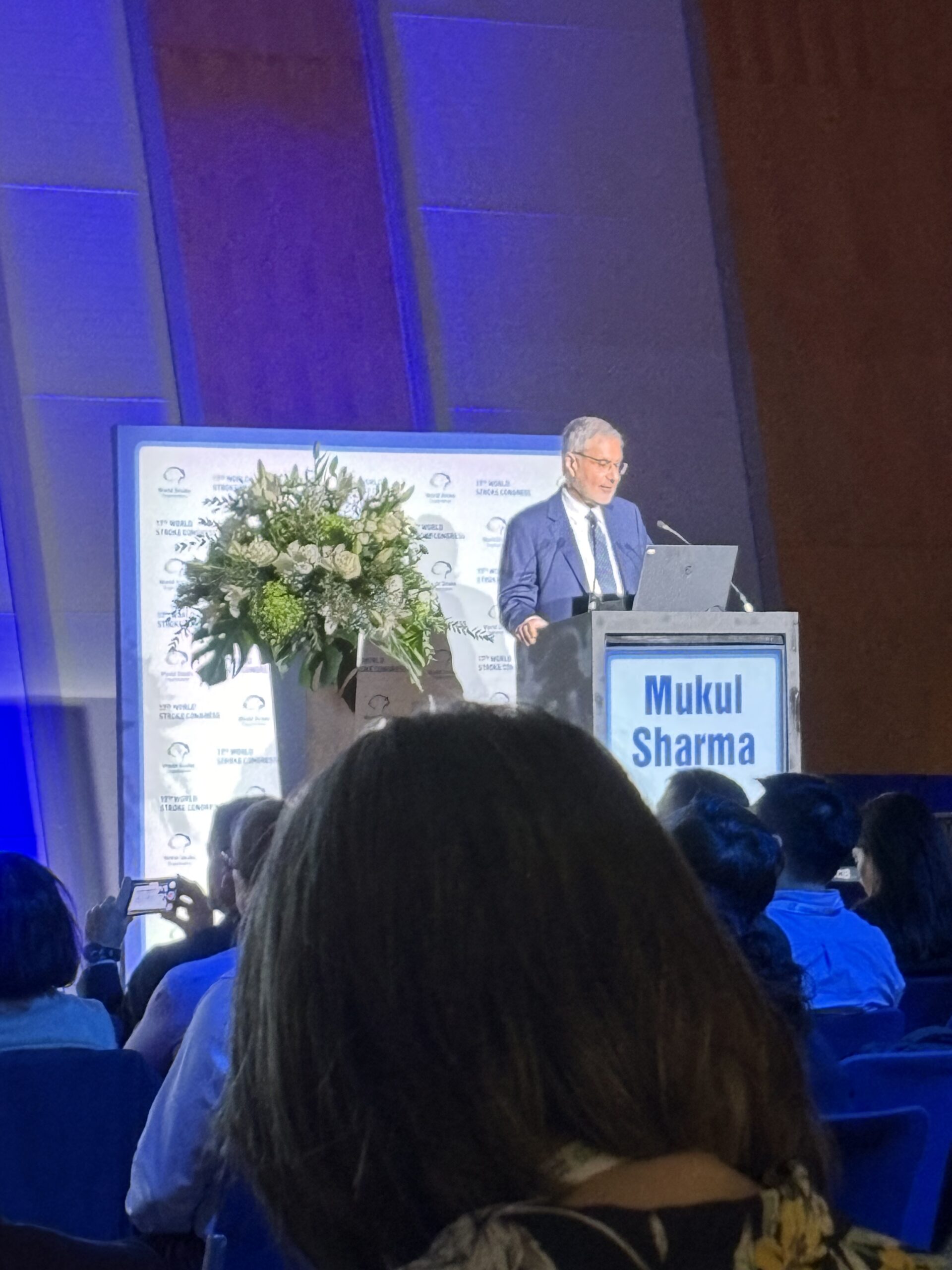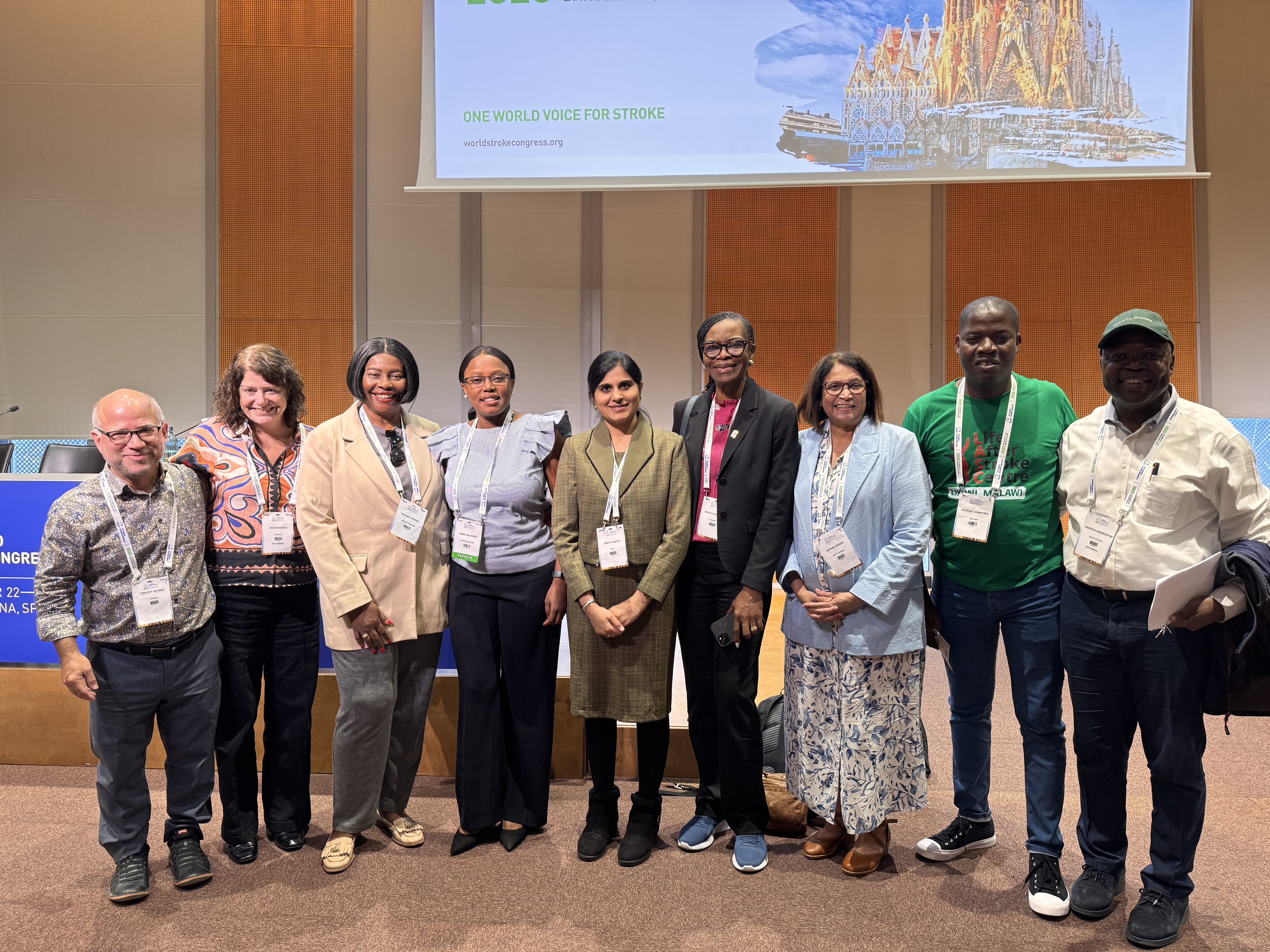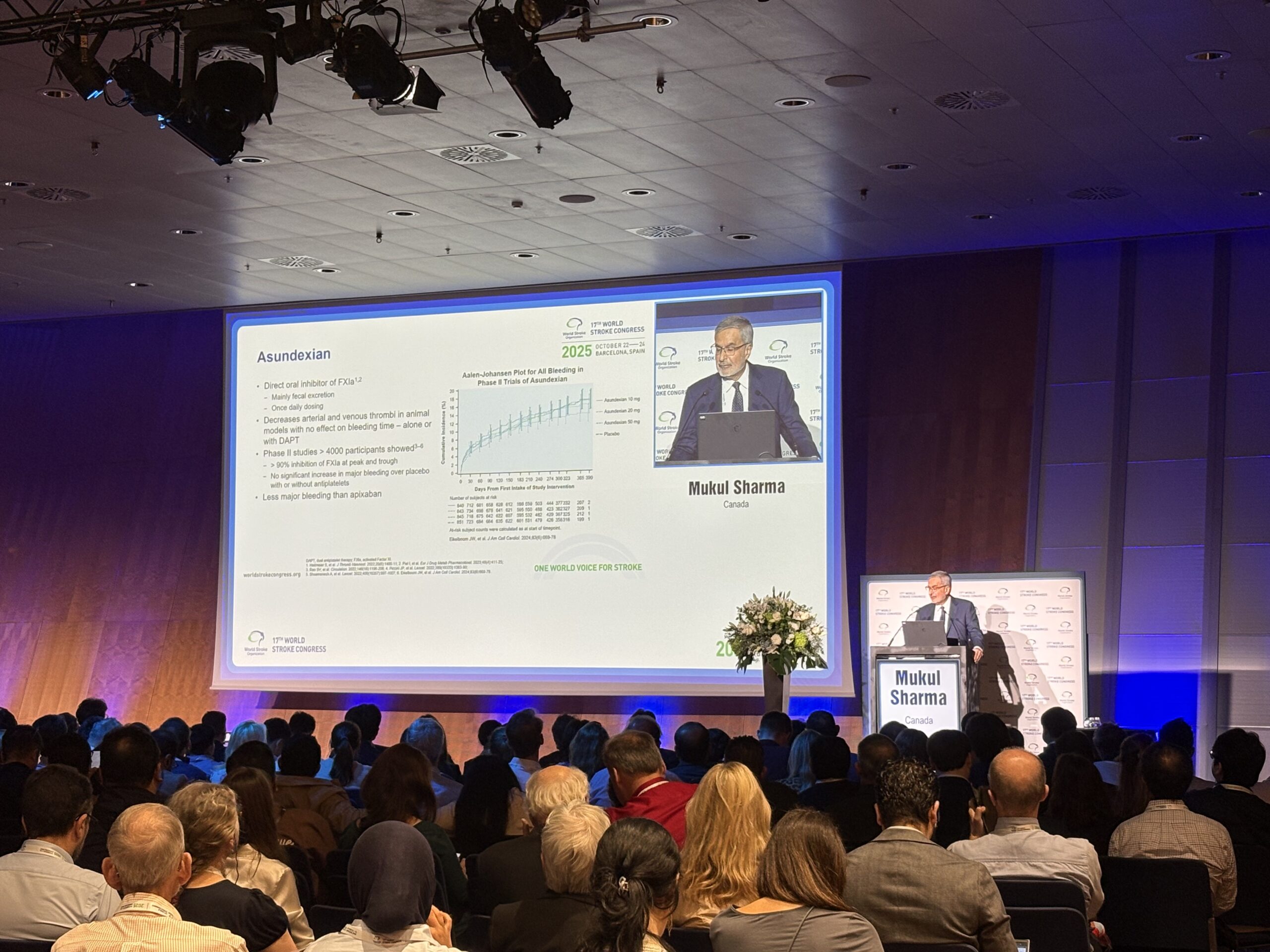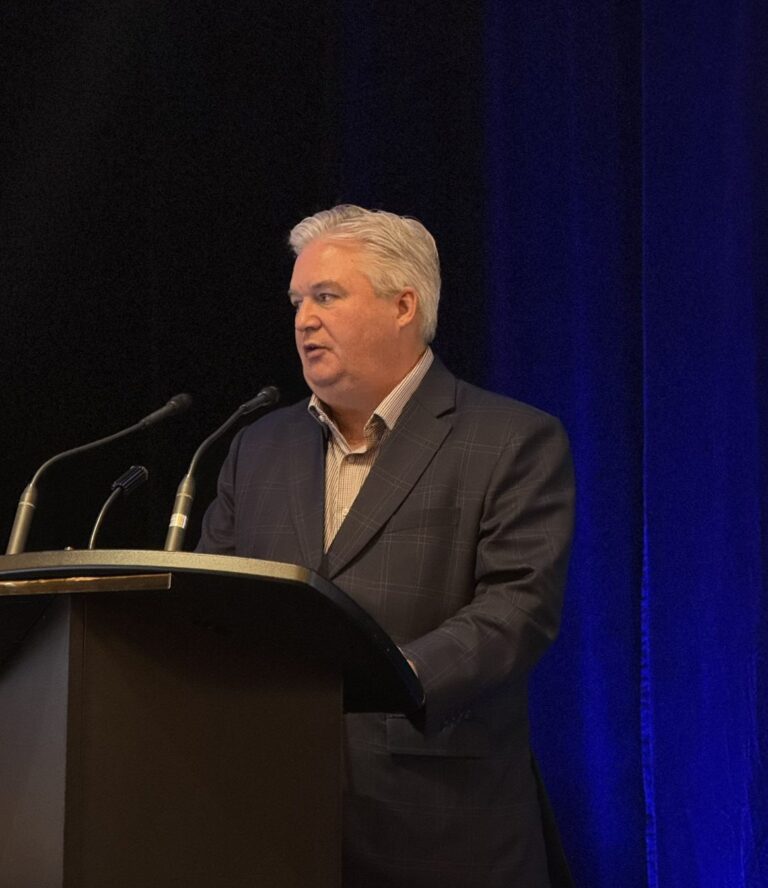PHRI researchers shared their latest research and insights at the World Stroke Congress (WSC) 2025.
Scientist Jackie Bosch highlighted findings from the global OSCAIL study, showing gaps in post-stroke discharge planning in low-resource settings. Also, a meeting was held for OSCAIL investigators to discuss study progress and next steps.
Senior Scientist Ashkan Shoamanesh presented a secondary analysis of the CoVasc-ICH trial, looking at how colchicine affects cognitive outcomes in patients with acute intracerebral hemorrhage. He also discussed how Factor XI inhibitors could help prevent stroke in patients without atrial fibrillation.
Senior Scientist Mike Sharma gave an update on the international OCEANIC-STROKE study, which includes 12,327 participants from 37 countries. The Phase 3 trial is testing asundexian, a new type of blood thinner, to see if it can lower the risk of another stroke in people who recently had a non-cardioembolic ischemic stroke or temporary stroke-like symptoms, while keeping bleeding risk low. He also joined discussions with other experts about the potential of Factor XIa inhibitors in preventing secondary strokes.
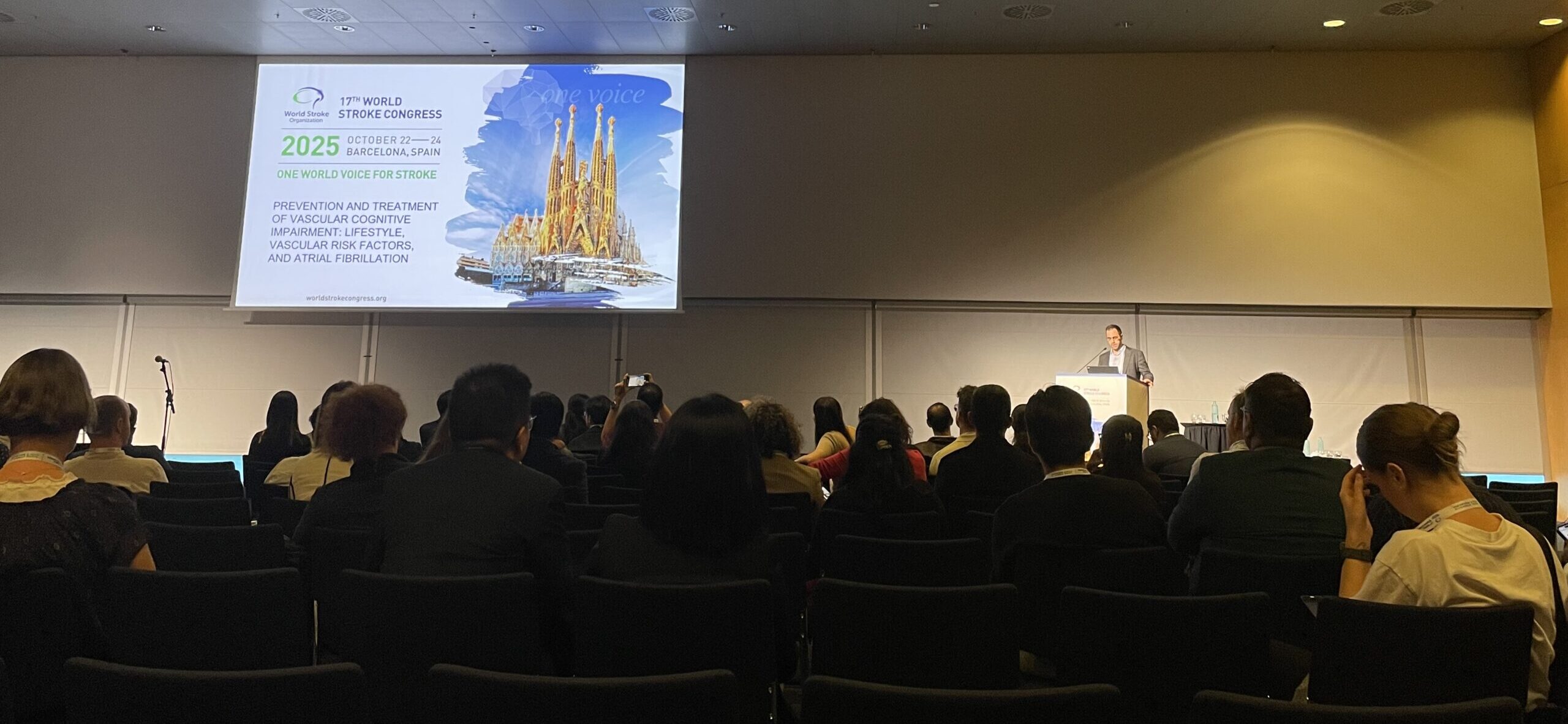
Joundi presenting at WSC 2025
Scientist Raed Joundi presented strategies to prevent and treat vascular cognitive impairment, focusing on lifestyle, vascular risk factors, and atrial fibrillation. He also shared data from the Ontario Stroke Registry on the incidence and risk factors for dementia after transient ischemic attacks. The PROSPECT Steering Committee also gathered in Barcelona to coordinate ongoing research activities.
Joundi was awarded the WSC 2025 Young Investigator Award for his contributions.
Scientist Aristeidis Katsanos presented on inflammation as a new target for improving outcomes in intracranial hemorrhage, and testing colchicine in patients after ICH to reduce cardiovascular events and dependency (CoVasc-ICH).
Scientist Kanjana (Sashi) Perera chaired three sessions on intracranial artery disease, stroke care across different populations, and debates on carotid artery disease. Investigator Luciana Catanese chaired a session on the risk and management of intracerebral hemorrhage.
- PROSPECT steering committee meeting
- OSCAIL investigators meeting
- Joundi accepting the award
- Aristeidis Katsanos
- Ashkan Shoamanesh
- Mike Sharma

